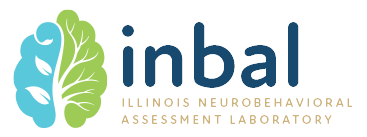We offer a tiered menu of neurobehavioral assessment services so that clients can select the best starting point based on their unique situations and needs. Clients may begin services at any level and seek assessment services whenever in-depth information about individual behavior, performance, and progress is desired.
Clients may wish to seek services more frequently during times of rapid development and growth, before and/or after significant environmental changes and interventions, and during important decision-making points throughout the lifespan. Assessment data informs recommendations about parenting, education, life activities, optimal environments, and treatment plans with the goal of helping our clients achieve balance and improve quality of life.
Screening
Behavior reviews or screenings are used to obtain standardized observational data about an individual across settings. Screenings can be completed online, and do not require a consultation with a psychologist or in-person sessions of any kind. Screenings will not provide diagnostic clarification, though they can help inform diagnostic clarification as a first step toward additional evaluation. Screenings are comparable to assessment services, but offer a more accessible and convenient option for individuals, parents, educators, and providers who are not yet sure whether a more in-depth assessment and/or testing is needed. They can also be used to monitor concerns and progress over time.
Screenings are commonly used for:
- A first step toward addressing curiosity
- Establishing a baseline measure
- Monitoring changes over time
Assessment
Targeted assessments or “check-ups” are used to obtain in-depth information about learning, attention, and memory. Most targeted assessments are completed in a single session (a “Total Academic” requires two sessions) and do not require an initial consultation with a psychologist. Assessments will not provide formal diagnostic clarification, though they can help inform diagnostic conceptualization as part of a more comprehensive psychological testing battery.
Targeted assessments are commonly used for:
- Improve understanding about each person’s unique academic strengths and weaknesses
- Provide standardized data about performance compared to same-aged peers
- Help inform decisions about if and/or when to pursue supplemental instruction and/or intervention
- Offer feedback about effectiveness of interventions to educators and providers
- Allow for comparisons between an individual’s performance on tests and observed behavior in natural settings
Testing
Psychological testing services are primarily used for diagnostic clarification. These services require an initial consultation with a psychologist and additional in-person sessions. Clients and/or caregivers also participate in feedback sessions to review results and recommendations with the psychologist and receive a written report.
Testing services are commonly used for evaluating:
- Attention-deficit/hyperactivity disorder (ADHD)
- Learning disabilities including dyslexia, dysgraphia, or dyscalculia
- Autism spectrum disorder
- Other conditions related to attention and executive functioning, learning, social-cognitive development, emotional functioning, and personality
Consultation
All consultations are held with Dr. Kathryn Leskis and/or Dr. Crystal Newman. There are three types of consultations:
- An exploratory consultation is held without prior commitment to any services. This type of consultation is best for clients who are unsure of their specific needs, and/or wish to explore options in more detail before making decisions. During this session, clients will discuss their current circumstances and questions to receive recommendations about next steps, which may or may not include neurobehavioral assessment. Hourly client service rates apply.
- An initial consultation is held prior to testing services. During this session, clients will discuss individual needs and concerns and plan additional testing sessions based on unique characteristics and needs, such as age, behavioral control, schedule, transportation, medication, pain, etc.
- A follow-up consultation may be held weeks, months, or years after services end. In a follow-up consultation, clients may wish to talk about whether re-evaluation is necessary, ask questions about next steps, or discuss progress.
